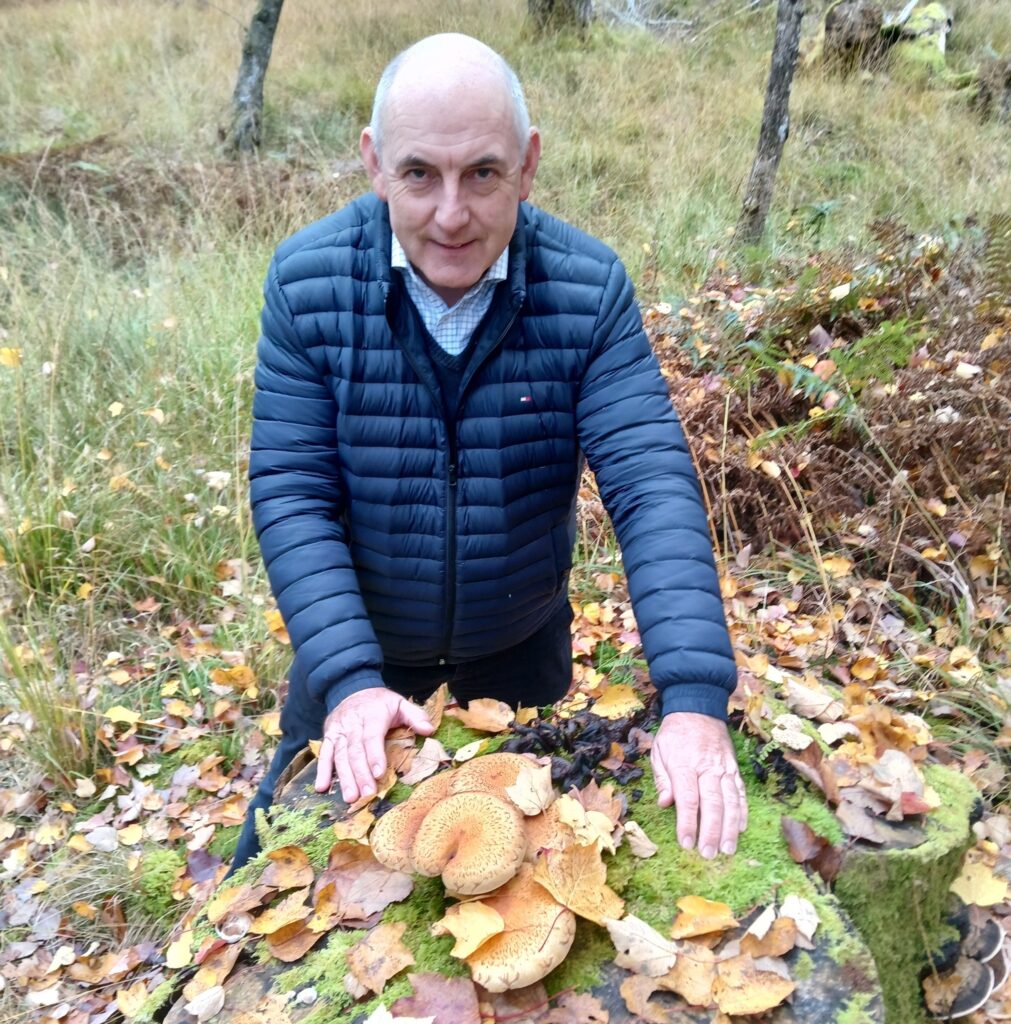Foraging in the Lake District warning

Foraging in the Lake District has become a favourite autumn pastime — and this year, ideal weather conditions have led to a bumper crop of wild mushrooms across the region. However, one park owner warns of forbidden fungi as guests get a taste for nature.
At Skelwith Fold Caravan Park in Ambleside, visitor numbers have mushroomed as guests and nature-lovers flock to the park’s 130-acre grounds to explore nature’s larder.
The park says visitor numbers are well up on last October as social media spreads the word about the rich pickings to be found. But the abundance of edible fungi has also prompted a gentle warning from the park’s director, Henry Wild.
Henry cautions guests that if they can’t tell their edible Penny Buns from potentially deadly Death Caps, it’s best to leave them be — and never allow children to forage alone.
He suggests that wild food seekers use an app such as Google Lens to photograph and identify fungi before picking.
A Taste for Foraging in the Lake District
Varieties such as apricot-coloured Chanterelles, brown-capped Penny Buns, and trumpet-like Horns of Plenty can make delicious eating, says Henry.
But he warns that other species — including Destroying Angels, Panther Caps, and Death Caps — can be highly poisonous.
“We certainly don’t want to deter anyone from enjoying a free culinary feast here, and this is an especially good year for fungi,” said Henry.
“Foraging also makes a great family day out, whether on our park or in the many ancient woodlands across the Lake District.”
He advises guests to gather only what they need for a single meal and to avoid stripping entire patches:
“Leave something for wildlife, such as the red squirrels and deer found at Skelwith Fold, whose winter survival depends on wild food,” he added.
Sustainable Foraging and Responsible Tourism
Skelwith Fold Caravan Park was named Holiday Park of the Year 2025 by Cumbria Tourism and has received multiple green awards for its commitment to the natural environment.
The park features 400 pitches, including luxury safari tents, glamping units, touring caravan and motorhome facilities, and privately owned holiday homes.
Many guests are drawn by the park’s immersive natural setting — enhanced this autumn by the abundance of fungi and other seasonal wildlife.
Henry says the team is keen to encourage responsible foraging in the Lake District, keeping it environmentally friendly and low-risk:
“We rely on a very high number of repeat bookings, and we certainly don’t want guests making this their last visit!” joked Henry, a former national chairman of the British Holiday & Home Parks Association.
Key Facts
- Location: Skelwith Fold Caravan Park, Ambleside, Lake District
- Focus: Responsible foraging and nature-based holidays
- Awards:
- Holiday Park of the Year 2025 – Cumbria Tourism
- Multiple Green Tourism and sustainability awards
- Accommodation:
- 400 pitches including luxury safari tents and glamping options
- Touring caravan and motorhome facilities
- Privately owned holiday caravans
- Foraging Highlights: Chanterelles, Penny Buns, Horns of Plenty
- Safety Reminder: Avoid poisonous fungi such as Death Caps, Panther Caps, and Destroying Angels
- Wildlife: Red squirrels, deer, and diverse woodland species rely on fungi for survival
Park Highlights
- Skelwith Fold offers a safe, scenic environment for nature walks and sustainable foraging.
- Guests are encouraged to forage responsibly and protect local wildlife habitats.
- The park’s award-winning eco credentials make it one of Cumbria’s top nature-based destinations.
- Visitors can use apps like Google Lens to safely identify fungi species.
FAQs about Foraging in the Lake District at Skelwith Fold
Can you forage for mushrooms at Skelwith Fold?
Yes – guests are welcome to explore the park’s 130-acre grounds for seasonal fungi, but they’re encouraged to do so responsibly and with care for wildlife.
What should I know before foraging in the Lake District?
Always identify fungi carefully. Use trusted guides or an app like Google Lens, and never eat anything you can’t positively identify as safe.
Which edible mushrooms can be found in the Lake District?
Common edible varieties include Chanterelles, Penny Buns (Cep), and Horns of Plenty — all found in woodlands around Ambleside and Skelwith Fold.
Are there poisonous mushrooms to avoid?
Yes – avoid species such as Death Caps, Panther Caps, and Destroying Angels, which can be fatal if consumed.
Is foraging allowed in national parks and private parks?
Foraging for personal use is permitted in most areas, but visitors should always follow local guidelines and respect private property.
What other wildlife can be seen while foraging?
Red squirrels, deer, and birdlife are often spotted in the park’s woodlands, thriving on the natural balance of local ecosystems.
Where can I stay while foraging in the Lake District?
Skelwith Fold Caravan Park in Ambleside offers award-winning eco accommodation — ideal for nature-lovers exploring the Lake District.
For more information, visit www.skelwith.com

